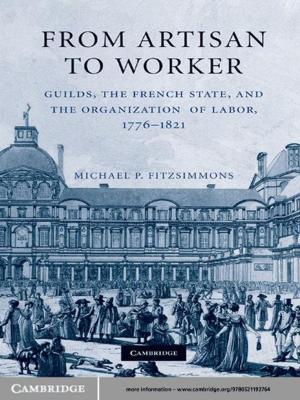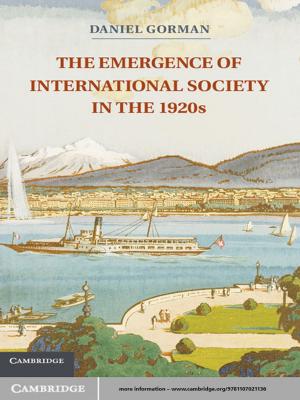Sterilized by the State
Eugenics, Race, and the Population Scare in Twentieth-Century North America
Nonfiction, Social & Cultural Studies, Political Science, International, Foreign Legal Systems, Social Science| Author: | Randall Hansen, Desmond King | ISBN: | 9781107424432 |
| Publisher: | Cambridge University Press | Publication: | August 26, 2013 |
| Imprint: | Cambridge University Press | Language: | English |
| Author: | Randall Hansen, Desmond King |
| ISBN: | 9781107424432 |
| Publisher: | Cambridge University Press |
| Publication: | August 26, 2013 |
| Imprint: | Cambridge University Press |
| Language: | English |
This book is the first comprehensive analysis of eugenics in North America focused on the second half of the twentieth century. Based on new research, Randall Hansen and Desmond King show why eugenic sterilization policies persisted after the 1940s in the United States and Canada. Through extensive archival research, King and Hansen show how both superintendents at homes for the 'feebleminded' and pro-sterilization advocates repositioned themselves after 1945 to avoid the taint of Nazi eugenics. Drawing on interviews with victims of sterilization and primary documents, this book traces the post-1940s development of eugenic policy and shows that both eugenic arguments and committed eugenicists informed population, welfare, and birth control policy in postwar America. In providing revisionist histories of the choice movement, the anti-population growth movement, and the Great Society programs, this book contributes to public policy and political and intellectual history.
This book is the first comprehensive analysis of eugenics in North America focused on the second half of the twentieth century. Based on new research, Randall Hansen and Desmond King show why eugenic sterilization policies persisted after the 1940s in the United States and Canada. Through extensive archival research, King and Hansen show how both superintendents at homes for the 'feebleminded' and pro-sterilization advocates repositioned themselves after 1945 to avoid the taint of Nazi eugenics. Drawing on interviews with victims of sterilization and primary documents, this book traces the post-1940s development of eugenic policy and shows that both eugenic arguments and committed eugenicists informed population, welfare, and birth control policy in postwar America. In providing revisionist histories of the choice movement, the anti-population growth movement, and the Great Society programs, this book contributes to public policy and political and intellectual history.















